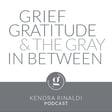
Honoring a Lifelong Love: Grief, Legacy, and The Isaac Collection with Pamela Blake
Pamela Blake, PhD, is the CEO of Utamatzi Inc, an independent publishing imprint dedicated to bringing creative, high-quality fiction to readers in the global marketplace. The initial offering is The Isaak Collection, which consists of five novels by her late husband, David Isaak.
Prior to forming Utamatzi several years ago, Dr. Blake was a Technical Fellow with The Boeing Company, from which she retired in 2020, after twenty years of employment. She is an expert in quantified performance assessment of imaging sensors and in the development and application of algorithms that exploit the underlying physics and phenomenology for automated feature and object recognition.
She holds a BA in Physics from Willamette University in Salem, OR, amd MS and PhD degrees in Geology/Geophysics from the University of Hawaii, Manoa. Dr. Blake resides in Huntington Beach, California. For more information, please consult: https://utamatzi.com.
Show Highlights:
- Navigating Grief and Legacy: Join Dr. Pamela Blake, CEO of Utamatsi Inc., as she shares her profound journey of processing grief as a loss, not a wound, following the sudden passing of her lifelong companion, David Isaak.
- From Love Story to Literary Imprint: Discover how Pamela's desire to honor David's lifelong passion for writing led her to create Utamatsi Inc., publishing his five novels as The Isaac Collection.
- The Genesis of The Isaac Collection: Learn about David's dedication to writing his novels, the challenges he faced with traditional publishing, and the emotional success of his first published work, "Tomorrow Bill," which impressively charted on Amazon.
- Enduring Connection and Shared Life: Hear about Pamela and David's extraordinary relationship that began at age 14, their shared love for music and gardening, and how Pamela continues to feel David's presence and guidance in her daily life.
- Embracing New Chapters: Explore Pamela's remarkable pivot from a distinguished career at The Boeing Company to becoming a publisher, and her future plans to write a sequel to David's novel and a guide for aspiring self-publishers.
- Powerful Takeaways: Pamela offers poignant advice: "Don't wait to tell somebody you love of them," "Don't be afraid to tell your story," and the importance of finding a "driving force" through life's deepest challenges.
Contact Kendra Rinaldi to be a guest on the podcast or to have her on your podcast:
https://www.griefgratitudeandthegrayinbetween.com/book-online


